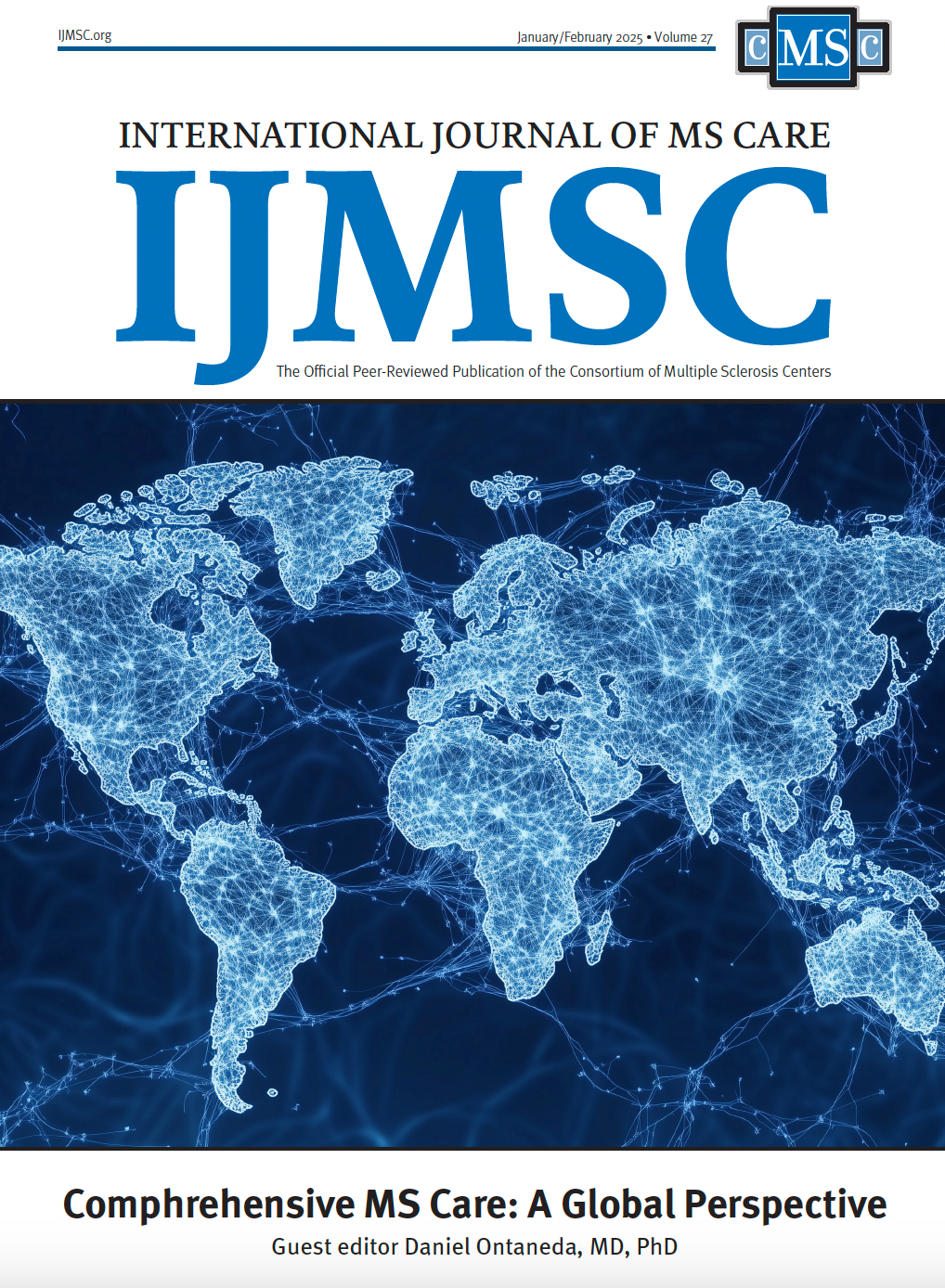Comprehensive MS Care: A Global Perspective
Key Takeaways
- Global MS care faces challenges in access and quality, despite scientific advancements. Each region has unique barriers and opportunities for improvement.
- Latin America uses generic and biosimilar drugs for cost savings, but lacks regulations for drug safety and efficacy.
The theme issue for the International Journal of Multiple Sclerosis Care (
From Latin America, Valeria Rocha, MD; and Carlos Navas, MD, offer us an overview of more than 30 countries supplemented by a survey of neurologists that focuses on the MS care available in 8 of those countries. Generic and biosimilar drugs are widely used and switching to achieve cost savings is frequent, although regulations to guarantee drug safety and efficacy are scarce.
With a focus on rural America and Appalachia in particular, Kaitlyn Palmer, MD; Jill Cochran, PhD, APRN; and Marisa McGinley, DO, show that finances, culture, and scarcity restrict MS care coverage even as community groups like Project ECHO (Extension for Community Healthcare Outcomes) make gains.
From sub-Saharan Africa, Nicholas Aderinto, MD, also reflects on cultural intricacies that can make chronic disease management difficult. He points out that initial misdiagnosis and access to neurologists continue to be roadblocks although the patient group Multiple Sclerosis South Africa continues to raise awareness and advocate for change.
In south-west India, the Mangalore Demyelinating Disease Registry, run by article author Lekha Pandit, MD, DM, PhD, currently contains 750 people with MS who live within a 500 km2 radius. The registry team also coordinates care, delivering disease-modifying therapy by courier service, running the single MRI scanner 24 hours a day 7 days a week, and conducting follow-up via telephone and video calls.
Jad Costa, MD; Joelle Massouh, MSCN; Saloua Mrabet, MD; Bassem Yamout, MD; and Gabrielle Macaron, MD, the authors who focus on the Middle East and North Africa, point out that the area is ripe for research: “The MENA MS population could serve as participants in the evaluation of several genetic, epigenetic, and environmental risk factors for MS.”
Finally, a coalition of 20 authors led by Marcia Finlayson, PhD, discuss the intricacy of planning research across borders by highlighting their efforts to plan well-being intervention trials across 8 countries. Are the same definitions being used in each location?
In summary, access to care has expanded, although levels of availability vary widely, and assuring the quality of that care continues to be a focus across the world. Read beyond the highlights in the PDF of the entire IJMSC theme issue from cover to letter from the guest editor to all 6 editorials.
Newsletter
Keep your finger on the pulse of neurology—subscribe to NeurologyLive for expert interviews, new data, and breakthrough treatment updates.







